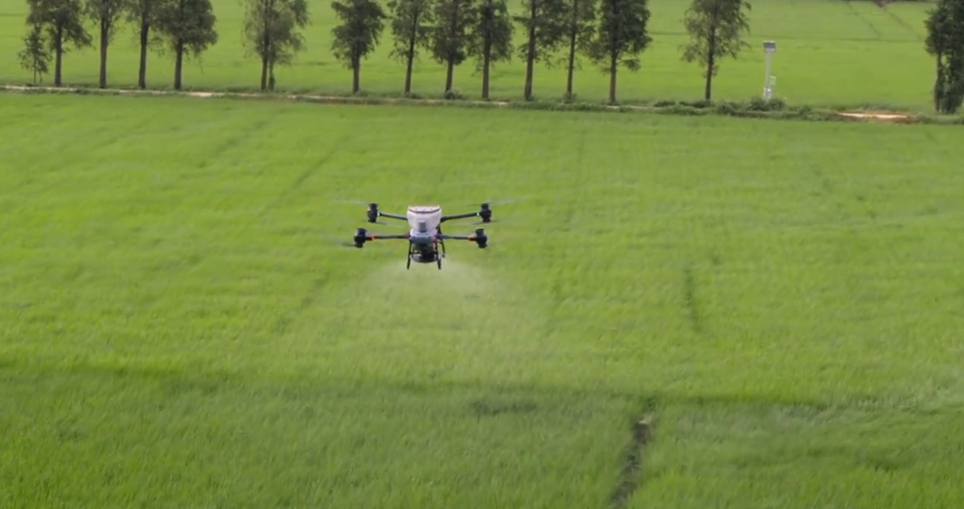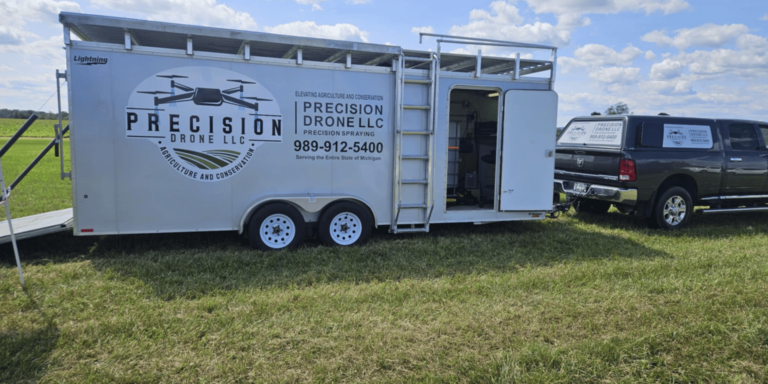
In the agricultural industry, effective pest management is crucial for protecting crops and ensuring high yields. However, traditional methods of applying insecticides can often be labor-intensive, imprecise, and pose risks to both the environment and human health. Precision Drone LLC offers an innovative solution with drone-based insecticide applications, providing a safer, more efficient, and precise method for managing pests. This blog post explores the advantages of using drones for insecticide applications and how this technology supports sustainable farming practices.
The Precision of Drone-Based Insecticide Applications
Drones equipped with advanced spraying systems offer unparalleled precision in the application of insecticides. Unlike ground-based sprayers, which can be inconsistent and result in uneven coverage, drones can target specific areas with remarkable accuracy. At Precision Drone LLC, our DJI AGRAS T50 drones are designed with dual atomizing spraying systems that allow for controlled droplet sizes and spray patterns. This technology ensures that insecticides are applied only where needed, minimizing waste and maximizing effectiveness.
Advantages of Using Drones for Insecticide Application
1. Targeted Pest Control: One of the primary benefits of using drones for insecticide applications is the ability to target specific pest infestations without affecting surrounding crops or beneficial insects. This targeted approach reduces the overall volume of chemicals used, which is better for the environment and helps preserve the ecological balance in the fields.
2. Enhanced Safety: Applying insecticides can pose significant health risks to farm workers, particularly when using ground-based equipment in confined spaces or near residential areas. Drones eliminate the need for close human contact with chemicals, enhancing safety by reducing exposure. Additionally, drones can operate in challenging terrains, such as steep slopes or muddy fields, where traditional machinery may struggle, further minimizing risks to personnel.
3. Increased Efficiency: Drones offer a significant boost in efficiency compared to traditional insecticide application methods. They can cover large areas quickly and uniformly, ensuring consistent treatment. This efficiency not only saves time but also reduces labor costs, as fewer workers are needed to manage the application process. For large-scale farming operations, this can result in substantial cost savings and improved operational efficiency.
4. Minimizing Environmental Impact: By precisely targeting pest hotspots, drones help minimize the environmental impact of insecticide use. This precision reduces the likelihood of chemical runoff into waterways, which can harm aquatic life and contaminate water supplies. Additionally, by using less chemical product overall, drone applications contribute to more sustainable farming practices, reducing the footprint of agricultural operations.
Supporting Sustainable Agriculture
Drone technology plays a crucial role in promoting sustainable agriculture by enabling more precise and controlled use of insecticides. This not only helps protect crops and increase yields but also supports the long-term health of the farm ecosystem. At Precision Drone LLC, we are committed to helping farmers adopt innovative and environmentally friendly practices that benefit both their operations and the broader community.
Conclusion
Insecticide applications using drones offer a range of benefits, including enhanced precision, safety, efficiency, and environmental protection. By adopting drone technology, farmers can improve pest management practices, reduce costs, and support sustainable agriculture. Precision Drone LLC is at the forefront of this technological advancement, providing expert drone services that cater to the specific needs of modern farmers.
If you are interested in learning more about how our drone-based insecticide applications can enhance your farming operations, contact Precision Drone LLC today for a consultation and free quote.




